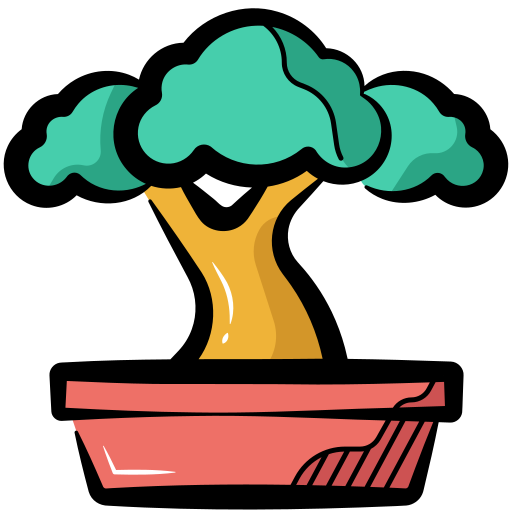The Heart of 'Pura Vida': Exploring Costa Rica's Rich History & Eco-Culture
Photo by GaudiLab
Step into Costa Rica, a nation that consistently defies expectations and redefines what it means to live 'Pura Vida.' Far more than a simple greeting, this ubiquitous phrase embodies a national identity forged in peace, rooted in nature, and vibrant with cultural richness. Join us as we journey through a country where lush rainforests meet innovative conservation, and ancient traditions blend seamlessly with a modern commitment to well-being.
A Bold Path to Peace: The Abolition of the Army
In 1948, following a brief but significant civil war, Costa Rica made a groundbreaking decision that would forever shape its destiny: it abolished its army. Led by then-President José Figueres Ferrer, this radical move was enshrined in Article 12 of the 1949 Constitution. This wasn't merely a political decision; it was a profound declaration of intent. By dismantling its military, Costa Rica liberated vast resources, choosing to invest in its people instead of arms. The funds once allocated to defense were redirected into education, healthcare, and social services, laying the foundation for a remarkably stable, literate, and healthy society. This commitment to peace has fostered a unique national character, prioritizing diplomacy and welfare over conflict.
Guardians of Green: Ecotourism and National Parks
Costa Rica stands as a global beacon for ecotourism and conservation. Recognizing the unparalleled beauty and biodiversity within its borders, the country has committed to protecting its natural treasures. Approximately 25% of Costa Rica's land is safeguarded within an extensive system of national parks and protected areas. This commitment didn't happen overnight; a rapid expansion of the national park system began in the 1970s, now encompassing 70 protected zones.
What makes Costa Rica's approach so effective is its innovative model: tourism revenue directly supports these conservation efforts. Visitors flock from around the world to witness the incredible flora and fauna, hike volcanic trails, and explore pristine beaches. This sustainable approach ensures that the country's natural heritage is preserved for future generations, while also providing economic benefits to local communities.
The Sweet and the Stimulating: Coffee and Cacao
No exploration of Costa Rica's culture is complete without delving into the rich history of coffee and cacao. These agricultural staples are more than just crops; they are interwoven into the nation's economic and social fabric.
☕ Coffee, introduced in the late 18th century, quickly became Costa Rica's "golden bean," driving its economic development and shaping its international identity. The country is renowned for its high-quality arabica beans, often grown using traditional methods that respect the land.
🍫 Cacao, with roots stretching back to indigenous civilizations, has seen a resurgence. Many cacao farms, particularly those on indigenous lands, practice sustainable and organic cultivation, preserving ancient traditions while producing delicious chocolate.
Tours of coffee and cacao plantations offer a fascinating glimpse into this heritage, from the cultivation process to the final product, often with insights into the lives of the farmers and indigenous communities.
Echoes of the Past: Indigenous Heritage
Long before the arrival of Europeans, indigenous communities thrived across what is now Costa Rica. Their legacy, though often overlooked, is a vital component of the country's cultural blend. From ancient spiritual practices to knowledge of the land, plants, and sustainable living, indigenous heritage continues to influence Costa Rican identity. The connection to cacao, for instance, is a direct link to these ancestral traditions, where the "food of the gods" held significant ceremonial and nutritional value. Exploring these connections offers a deeper understanding of the country's profound relationship with its environment and its past.
'Pura Vida': More Than Just Words
The phrase "Pura Vida" – pure life – is the heartbeat of Costa Rica. It's an expression of contentment, a philosophy of life, and a way of being. It means living life to the fullest, embracing simplicity, finding joy in small moments, and approaching challenges with an optimistic spirit. This philosophy stems directly from the country's unique history: a nation free from the burden of a military, rich in natural beauty, and committed to the well-being of its citizens. "Pura Vida" is evident in the warm smiles of locals, the relaxed pace of life, and the deep respect for nature that permeates every aspect of Costa Rican society. It's an invitation to slow down, appreciate the present, and live a life unburdened by unnecessary complexities.
Costa Rica is a country that truly lives its motto of 'Pura Vida.' Its fascinating history, marked by a courageous commitment to peace and an unwavering dedication to environmental protection, has cultivated a vibrant culture unlike any other. From the rich aroma of its coffee to the ancient wisdom of its cacao, every corner of Costa Rica tells a story of harmony, resilience, and profound beauty. Don't just read about it – experience the culture firsthand. Find and book a local coffee or cacao plantation tour today and plan the rest of your trip with Go Beyond Travel and discover your own 'Pura Vida' moment!
#Ecotourism #PuraVidaMeaning #Conservation #CoffeeHistory #IndigenousCulture #CostaRica
📦 Key Takeaways
Army Abolition: Costa Rica abolished its army in 1948, allowing resources to be focused on education, healthcare, and social welfare.
Ecotourism Leader: The country is a global leader in ecotourism, protecting roughly 25% of its land through a robust national park system.
Economic Pillars: Coffee and cacao cultivation have been pivotal in shaping Costa Rica's economy and cultural heritage.
National Philosophy: 'Pura Vida' is the national motto, reflecting a spirit of peace, environmental harmony, and optimistic living.
Indigenous Heritage: The nation's indigenous heritage remains a vital and enduring element of its cultural identity.





